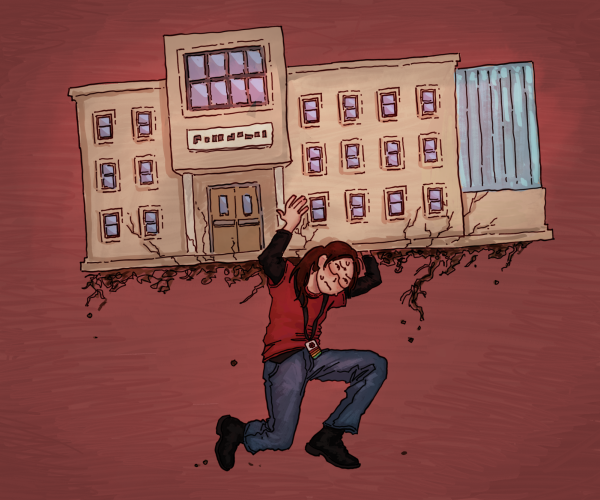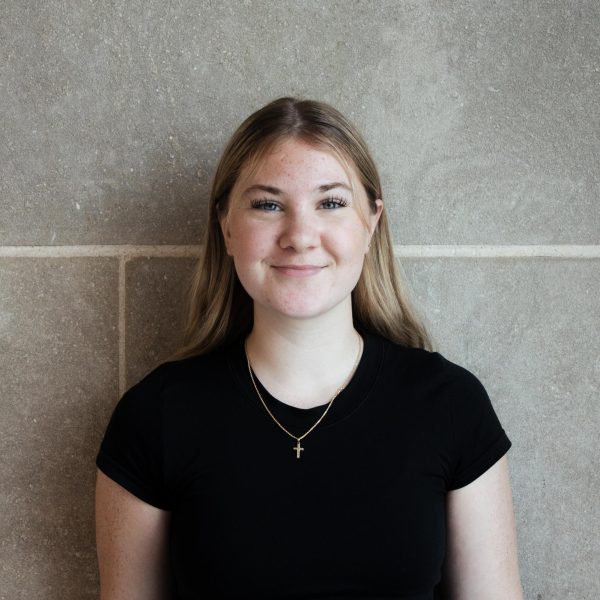From the moment her students’ bus arrives on campus, Caitlin Swinford is guiding them to class, supporting behavior needs and working alongside teachers. As a behavior support paraprofessional at Naperville Central, Swinford and her colleagues play a vital role in District 203’s special education department, providing one-on-one assistance and support.
Currently, there are 19 open positions for special education assistants in District 203, even as Central’s paraprofessional team is fully staffed for the first time in over four years. Yet retaining these essential staff members remains a challenge.
“Unfortunately, the paraprofessional positions have a lot of turnover, so we’ve lost a lot of great paraprofessionals that we would have loved to keep within the classroom,” said Phoebe Conner, a learning behavior specialist at Naperville North. “There’s no real way to move up in regards to the job that they do, they often can find jobs that are less stressful and better paying outside of the school district, and they end up leaving something that they really love.”
Impact on Student Success
After graduating from Central in 2021, Lily Goodfellow is now a student at District 203’s Connections Transition Services. Goodfellow, who has Down syndrome, credits part of her success at college to the teachers and assistants who helped her learn the life skills vital towards gaining a greater sense of independence.
“They helped me participate in my classes, in special and general education ones,” Goodfellow said. “They especially helped me in grade school to learn how to be a student so that I didn’t need as much help in high school.”
Goodfellow is now in her last year as a student at Connections, and is set to earn a media and journalism certificate from College of DuPage in the spring.
“It’s kind of like the teachers are the doctors and we’re the nurses—we’re not below them, it’s a little bit separate, but we work together,” Swinford said. “Without us it would kind of be a free for all. Nothing would get managed and the students wouldn’t be able to be independent. Our goal is for the kids to do as much as possible; independence is key.”
Goodfellow believes working with the same paraprofessionals throughout high school was beneficial because they got to know her and how she works best.
Staffing Challenges
“[Being fully staffed] makes a huge difference. It makes the day flow so much better, and it creates consistency for the kids,” said Breanne Nikkel, a learning behavior specialist at Central. “When you’re fully staffed you can actually do what you want to do in the classroom effectively.”
Just because Central is fully staffed doesn’t mean they couldn’t benefit from more people, Swinford said. On days where a lot of paraprofessionals are out the whole day can be thrown “into chaos.” Even when one paraprofessional is out, other paraprofessional’s schedules may have to be adjusted to fill the void in staffing.
“Two staff in the bathroom is the policy, so if there are only two paraprofessionals in the classroom with the teacher, and the two paraprofessionals are in the bathroom, then there is one adult with six kids,” Swinford said.
Pay and Retention
Conner attributes much of the turnover to low pay. While only one Central paraprofessional cited pay as a reason for leaving in recent years, District 203 has still seen a significant number of paraprofessionals resign each year.
“For the amount of work that they’re doing and the intensity, they’re doing what no one else in the whole building has to do at a fraction of the pay,” Nikkel said.
Currently, special education assistants’ pay starts at $16.91 per hour. Upon training, paraprofessionals can become behavior support paraprofessionals, and increase the starting pay to $18.91 per hour. BSPs always work with students who have multiple needs or more challenging behaviors.
“I don’t think the current pay that they get reflects their job at all as it is very tiring,” Conner said. “Besides implementing the learning practices within the classroom, my students have significant needs, so they’re bathrooming students, feeding students, and are essential in regards to safety. It’s not just the academic side, but it’s the social-emotional side as well.”
The starting pay for paraprofessionals at Valley View School District 365U, Indian Prairie School District 204 and Hinsdale School District 86 for the 2024-2025 school year is $19.32, $17.25 and $19.00 respectively.
“If we have comparables from other school districts, and we’re a world class school district, then our teachers’ pay should be competitive,” said Chris Hayman, a third grade teacher at Ranch View Elementary School. “[It should] even [be] on the high end of ‘competitive’ in my opinion, because of their value.”
According to Hayman, teaching assistants in District 203 find motivation in their relationships with students and their love for working with kids—a perspective that Nikkel also shared.
“They do it for the kids, none of them are doing it for the pay,” Nikkel said. “You wouldnt work in this program if you weren’t fully motivated to work with these kids. You just wouldn’t, no one would.”
Beyond the pay, Swinford sees other hurdles for paraprofessionals. Unlike teachers, paraprofessionals are not given a planning period and have to “steal” minutes in the day to communicate with teachers about the students. Additionally, paraprofessionals collect data on students throughout the day to send back to psychologists, social workers and speech therapists.
“We’re kind of thrown into the job, there’s no training,” Swinford said. “The training is you start [in the position]. Sometimes if you’re lucky, you get to follow someone who’s a veteran paraprofessional for like a week. A lot of the time that doesn’t happen and it’s like [to] throw the baby in the water, see if they can swim.”
Voices of Support

Over 20 staff members, students and parents have spoken in support of paraprofessionals at District 203’s board of education meetings since Sept. 9.
“Our paraprofessionals greatly impact the success of our students, I could not do my job without them,” Conner said. “I can’t implement everything that I know as a special educator, all of the research-based practices that we implement and activities within the classroom, they would be null and void without our paraprofessionals.”





